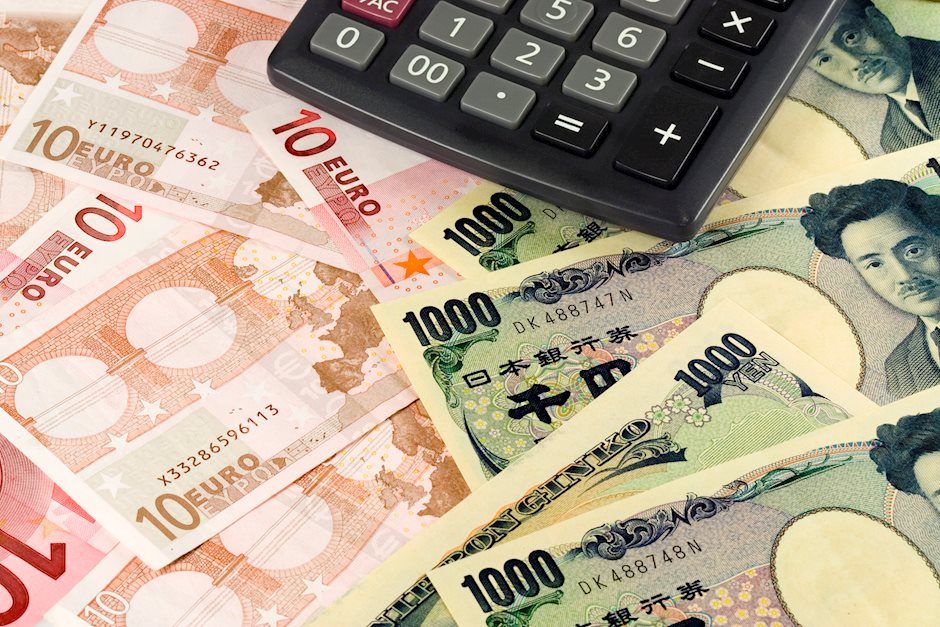EUR/JPY consolidates below 162.00 as investors await German inflation data
- EUR/JPY stays in tight range below 162.00, with investors focusing on the flash German and Eurozone HICP data for December.
- The ECB is almost certain to cuts its Deposit Facility rate by 25 bps in the policy meeting this month.
- Japanese markets are closed on account of New Year celebrations.

The EUR/JPY pair trades in a tight range below the key resistance of 162.00 in Friday’s European session. The cross consolidates as investors await the preliminary German and Eurozone Harmonized Index of Consumer Prices (HICP) data for December, which will be released on Monday and Tuesday, respectively.
The inflation data will significantly influence market expectations for the likely European Central Bank (ECB) interest rate action in the policy meeting this month. Currently, traders have priced in 25 basis points (bps) interest rate reduction that will push the Deposit Facility rate lower to 2.75%. Signs of a sharp slowdown in inflationary pressures would accelerate expectations of a larger-than-usual interest rate cut of 50 bps.
Meanwhile, almost all ECB policymakers are comfortable with market expectations of continuation in policy-easing at a steady pace due to growing risks to Eurozone economic risks.
Broadly, the Euro (EUR) will be guided by market speculation for how much United States (US) President-elect Donald Trump will raise import tariffs on the shared continent when he will take administration on January 20. In the election campaign, Trump threatened to raise import tariffs on the Eurozone for not buying significant American goods.
In the Asia-Pacific region, volatility in the Japanese Yen (JPY) remains low as markets are closed in Japan on account of New Year celebrations. However, traders are worried about Japan’s stealth intervention in the FX domain against excessive foreign exchange moves. Japan Finance Minister Katsunobu Kato said last week that authorities are watching FX moves closely and will act to stabilize faltering Yen.
Euro FAQs
The Euro is the currency for the 19 European Union countries that belong to the Eurozone. It is the second most heavily traded currency in the world behind the US Dollar. In 2022, it accounted for 31% of all foreign exchange transactions, with an average daily turnover of over $2.2 trillion a day. EUR/USD is the most heavily traded currency pair in the world, accounting for an estimated 30% off all transactions, followed by EUR/JPY (4%), EUR/GBP (3%) and EUR/AUD (2%).
The European Central Bank (ECB) in Frankfurt, Germany, is the reserve bank for the Eurozone. The ECB sets interest rates and manages monetary policy. The ECB’s primary mandate is to maintain price stability, which means either controlling inflation or stimulating growth. Its primary tool is the raising or lowering of interest rates. Relatively high interest rates – or the expectation of higher rates – will usually benefit the Euro and vice versa. The ECB Governing Council makes monetary policy decisions at meetings held eight times a year. Decisions are made by heads of the Eurozone national banks and six permanent members, including the President of the ECB, Christine Lagarde.
Eurozone inflation data, measured by the Harmonized Index of Consumer Prices (HICP), is an important econometric for the Euro. If inflation rises more than expected, especially if above the ECB’s 2% target, it obliges the ECB to raise interest rates to bring it back under control. Relatively high interest rates compared to its counterparts will usually benefit the Euro, as it makes the region more attractive as a place for global investors to park their money.
Data releases gauge the health of the economy and can impact on the Euro. Indicators such as GDP, Manufacturing and Services PMIs, employment, and consumer sentiment surveys can all influence the direction of the single currency. A strong economy is good for the Euro. Not only does it attract more foreign investment but it may encourage the ECB to put up interest rates, which will directly strengthen the Euro. Otherwise, if economic data is weak, the Euro is likely to fall. Economic data for the four largest economies in the euro area (Germany, France, Italy and Spain) are especially significant, as they account for 75% of the Eurozone’s economy.
Another significant data release for the Euro is the Trade Balance. This indicator measures the difference between what a country earns from its exports and what it spends on imports over a given period. If a country produces highly sought after exports then its currency will gain in value purely from the extra demand created from foreign buyers seeking to purchase these goods. Therefore, a positive net Trade Balance strengthens a currency and vice versa for a negative balance.
Author

Sagar Dua
FXStreet
Sagar Dua is associated with the financial markets from his college days. Along with pursuing post-graduation in Commerce in 2014, he started his markets training with chart analysis.

















